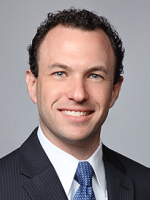As expected, the Occupational Safety and Health Administration is pleased that agency fines will be going up as much as 82 percent next year, even though the authorization from Congress in a budget bill was unexpected.
Congressional approval for the increase was contained in the Bipartisan Budget Act of 2015, a deal this fall that authorizes funding for federal agencies through September 30, 2017. It allows OSHA and most other federal agencies to raise monetary penalties by an amount pegged to the Consumer Price Index. Since OSHA last raised fines in 1990 and because it has never before been permitted to make inflation-adjusted penalty increases, the amount of the increase in OSHA fines could be as high as 82 percent. In addition, Congress is allowing OSHA fines to be automatically adjusted for inflation going forward.
“We were surprised to see that it was in the budget bill, but we are very pleased because we have felt that OSHA penalties are certainly too low to have the impact that we need to have,” OSHA Assistant Secretary Dr. David Michaels told Inside OSHA Online. “But I don’t know specifically how it was put in there. The negotiations were in a closed room and we weren’t part of the negotiations.”
The changes mean civil penalties for serious and non-serious violations could climb to about $12,700, from the current $7,000 maximum, while those for willful and repeat violations could go to approximately $127,000, from the current $70,000 maximum.
Congress directed that the new rates be in effect by August 1, 2016. However, Michaels told the media outlet that OSHA has not yet formally begun work on an interim final rule, a fast track method that allows federal agencies to shorten the regulatory process by proposing a final rule while simultaneously taking the mandated step of soliciting stakeholder comments.
“The law says that the first thing that must happen is, the Office of Management and Budget has to issue guidance, and we are waiting for that guidance,” said Michaels. “Once we get that guidance we’ll decide how to move forward,” he said. Congress gave OMB until January 31, 2016, to issue the guidance.
The budget language provides that, under certain conditions, the agency head, after issuing the rule and accepting comments, could adjust the amount of a civil monetary penalty by less than what otherwise would be required. Those conditions include a determination that increasing the civil monetary penalty by the required amount would have a negative economic impact or a negative social cost relative to its benefits. OMB also would have to agree to any such adjustments. Given OSHA’s belief that higher fines produce improved compliance, there is little likelihood Michaels will lower the approved amounts.
Besides OSHA, Congressional Democrats long have sought to increase penalties as part of the Protecting America’s Workers Act, for which bills have been introduced repeatedly in Congress over the past several years. A request to increase OSHA penalties also was in the Administration’s budget.
Civil fines levied by the Mine Safety and Health Administration are not expected to be significantly affected, since MSHA last adjusted its penalties for inflation in January 2013 and inflation has been low since.




 />i
/>i

